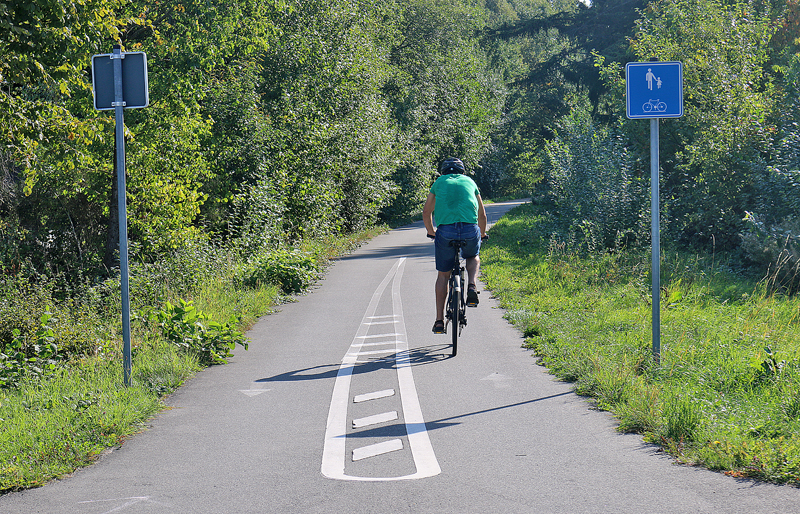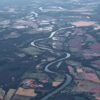The Vennbahn is a former German railway line about which I first mentioned in this article pertaining to 13 of the most fascinating international borders in the world; but it became part of Belgium after the Treaty of Versailles — even in several areas which are supposed to be part of Germany.
The Vennbahn Former Railroad Line: Belgium Winds Inside of Germany
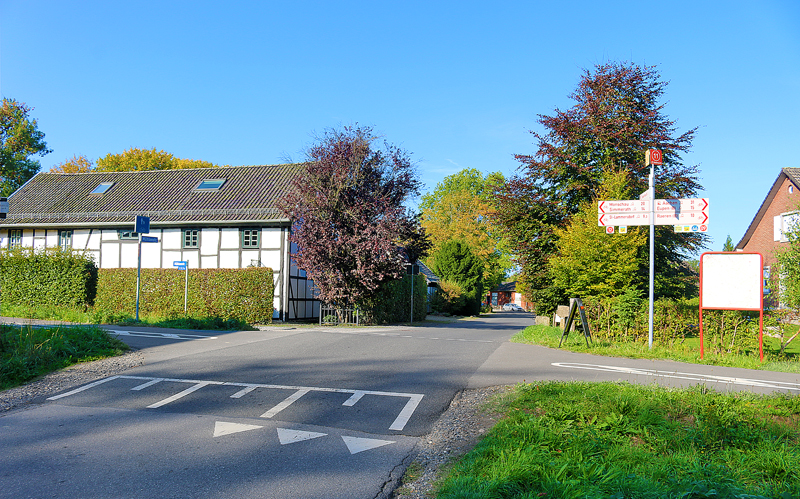
I decided to visit Roetgen in Germany, at where all of the photographs were taken.
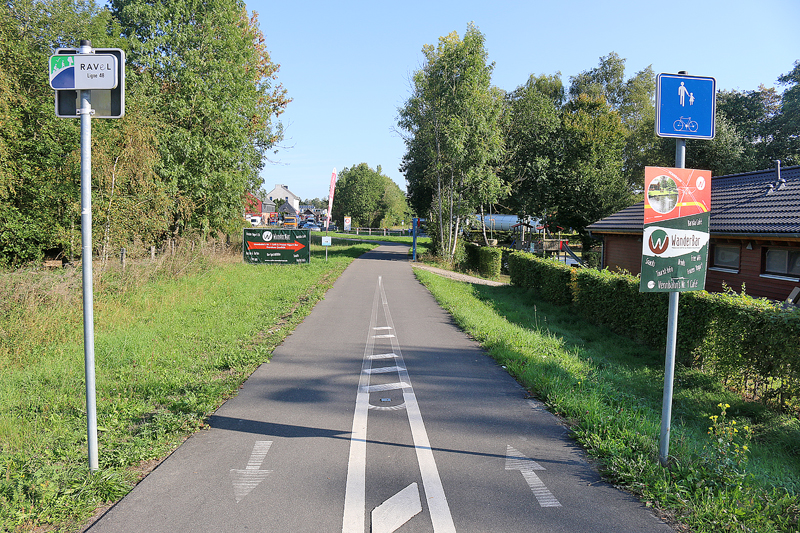
As a result of the Vennbahn, six exclaves of Germany were created on the west side of the former railroad line — as well as one enclave of Belgium, which was created inside a three-way intersection of German roads.
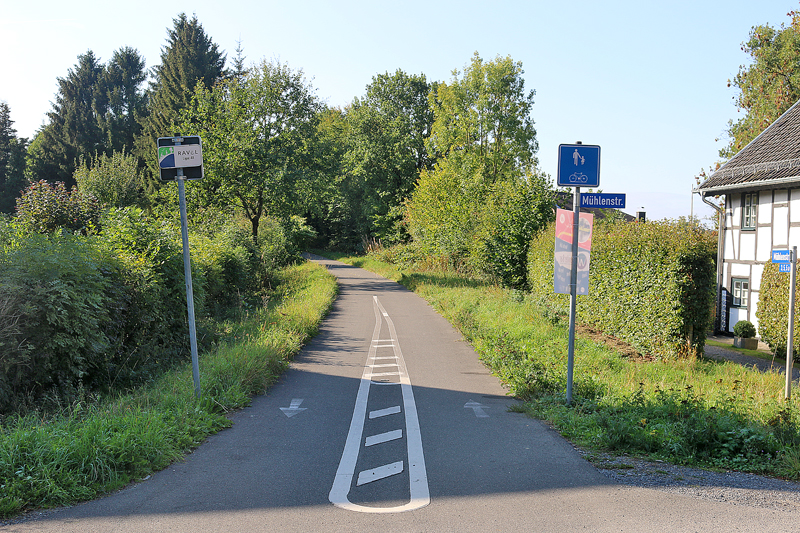
Today, five exclaves of Germany exist; while the lone exclave of Belgium ceased to exist on Saturday, April 23, 1949. One of the five exclaves of Germany is on the right in this view from a street called Mühlenstraße in the municipality of Roetgen. The camera is facing south on the Vennbahn, which is in Belgium — but the land on either side of the Vennbahn is in Germany.
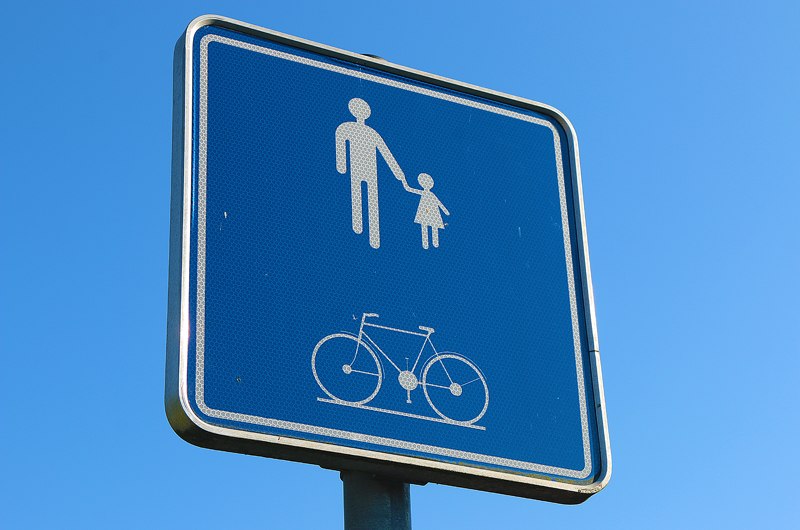
This sign alerts that the Vennbahn is only for pedestrians and bicyclists.
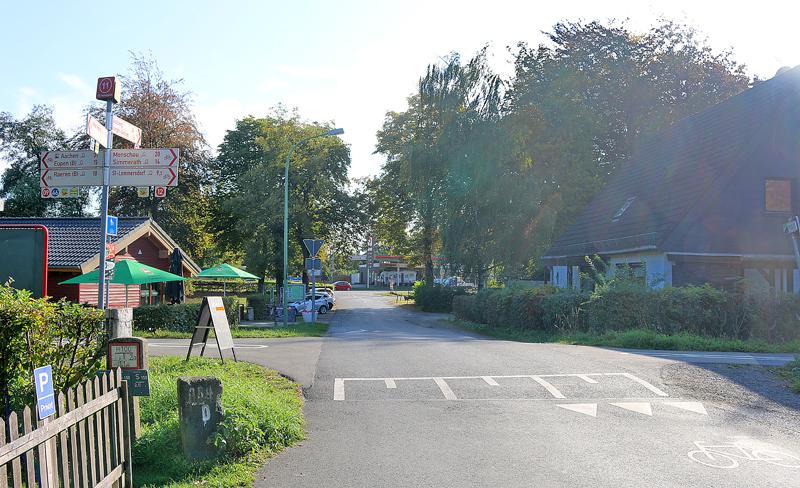
I parked the rental car amongst the cars in a small parking lot down the street on the left — and walked to the former railroad line.
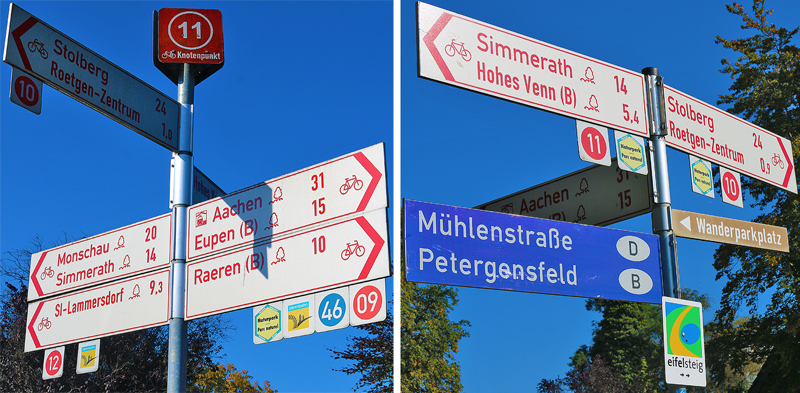
The white directional signs with red type are for bicyclists on the Vennbahn.
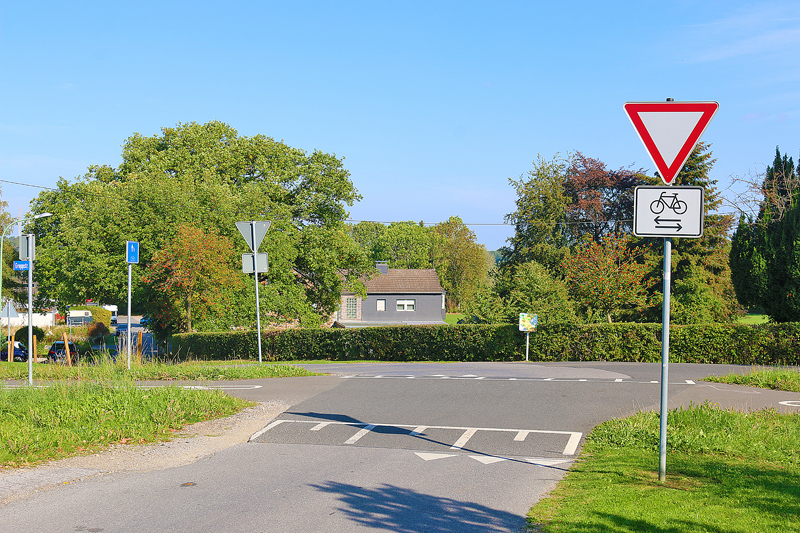
In a different area of Roetgen, I visited another place where the Vennbahn crosses a street called Greppstraße in Germany.
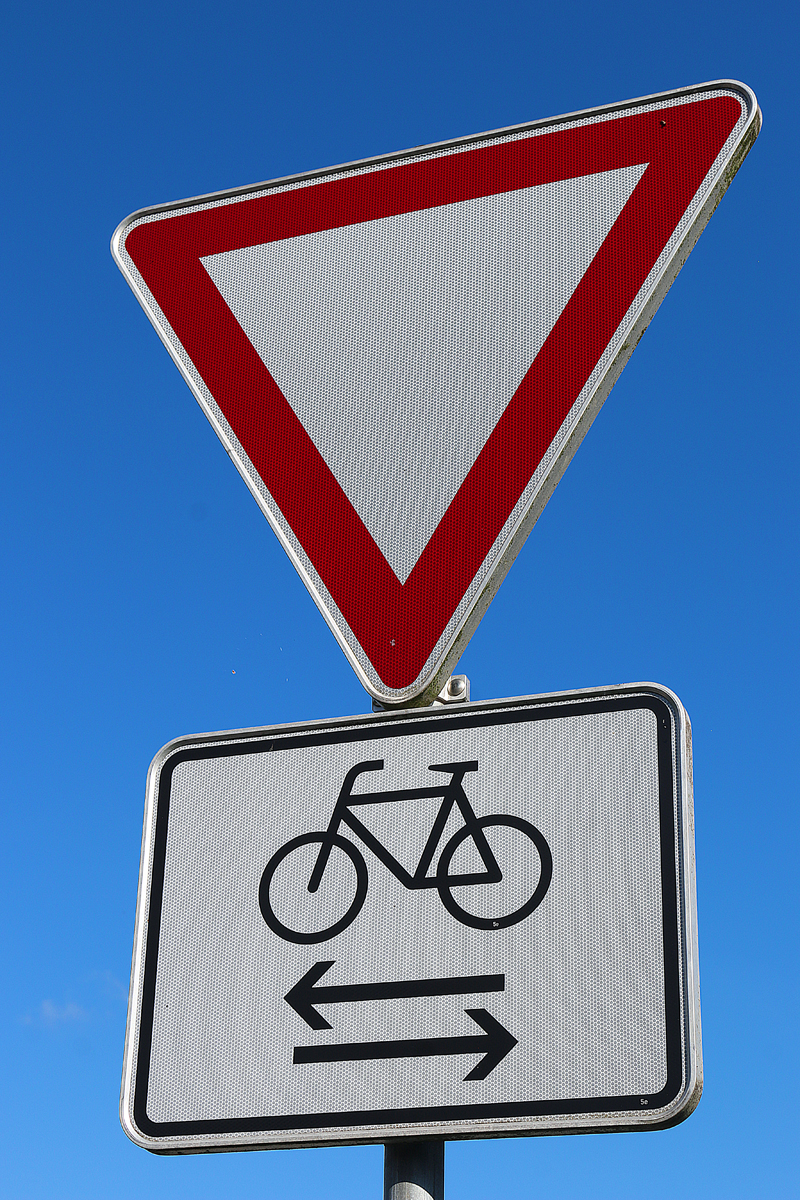
Signs for motorists to yield to bicyclists are found at the intersections; but no official signage exists to inform of the demarcations of the borders between Germany and Belgium.
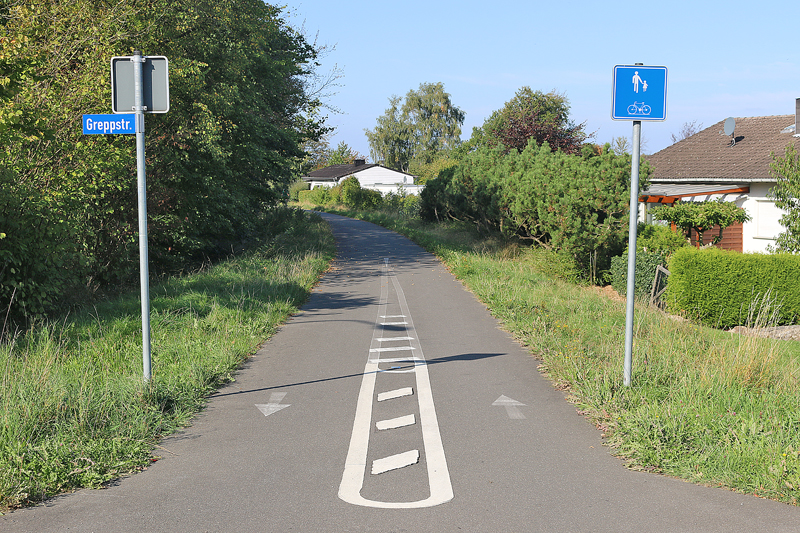
This view of the Vennbahn is facing west from its intersection with Greppstraße. Because the Vennbahn is in Belgium, the aforementioned exclave of Germany is on the left; while the remainder of Germany is on the right. Because I was on the Vennbahn itself, I was actually in Belgium.
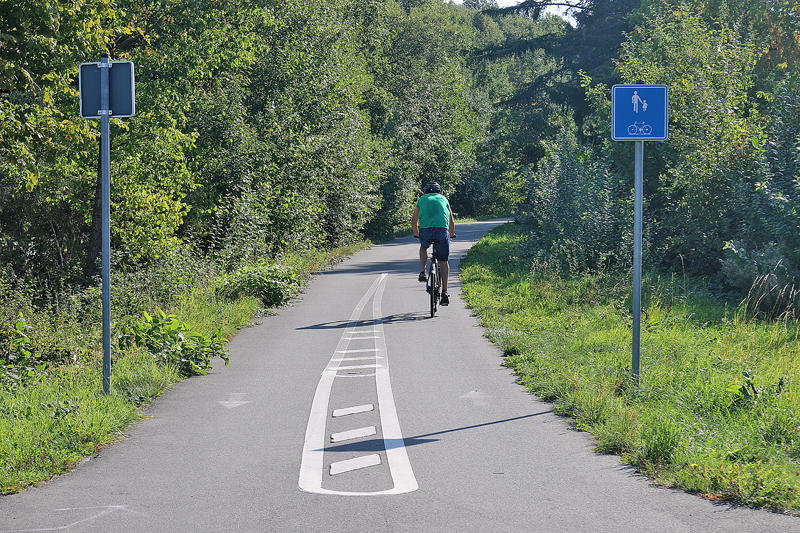
This view of the Vennbahn is facing southeast from its intersection with Greppstraße. Because the Vennbahn is in Belgium, the aforementioned exclave of Germany is on the right; while the remainder of Germany is on the left. Again, I was actually in Belgium.
Summary
The red marker on the interactive map shown above is where the Vennbahn intersects with Mühlenstraße in Roetgen, which is where many of the photographs included in this article were taken…
…but if you zoom out on the map, you will see how the Vennbahn slices through portions of western Germany and creates the aforementioned exclaves.
I enjoy having fun with enclaves and exclaves — as I did in the United Arab Emirates and Oman — as well as being on the borders in three countries at the same time or four states at the same time.
Speaking of borders, enclaves and exclaves, I have also been to Baarle Nassau and Baarle Hertog in Belgium and the Netherlands. Look for a future article on my experience there.
All photographs ©2018 by Brian Cohen.
